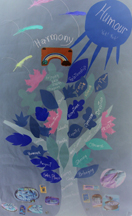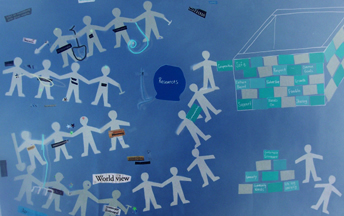The Learning Circles Project |
||
| Snapshots - Rural Circles by Arthur Bull |
||
The more we looked at rural learning circles, the more we realized what a rich and varied field it is. You don’t have to look far in any rural community to find examples of learning circles at work. Here are just a few of the examples we encountered. Family Resource CentresThese centres offer a wide range of programming most of which includes group learning. The topics include cooking, budgeting, storytelling, parenting and family literacy. Women's GroupsMany rural women’s organizations offer specific program on topics such as lifeskills, self-esteem and job readiness. They also bring women together to discuss and address policy issues such as income or law enforcement policies. Volunteer Fire DepartmentsJust about every rural area has one, and there is a great deal of learning going on there. Volunteer firefighters learn most of their skills from their peers in groups. Youth Groups4H is the best known, but there is a long history of active group learning for rural youth. Resource-Related GroupWhether fisheries, forestry or mining or farming, groups often convene to address specific resource management issues, especially when they are involved in community-based management. Environmental GroupsMany rural community groups that get together to address a particular environmental threat, keep meeting to learn more about the issues and related policies. ArtsThere is a long tradition or rural people getting together to learn arts and crafts- from rug hooking and quilting to playing music. This list could go on. The point here is that learning circles are an intrinsic part of the social fabric in rural Canada. |
||

